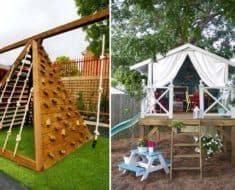
Our aging population is at the centre of new legislation, with government leaders and property planners narrowing their attention to the subject of aged care. Amongst all this rhetoric and future planning, it can be hard to determine what the options are for those entering aged care, and what options are on the table. Let’s get to the facts and understand how aged care is not a one size fits all, but instead a multifaceted progression with arrangements to suit all individuals.
Firstly, what constitutes ‘aged care’
Now, what is aged care, and what determines this assessment? Aged care is a diverse offering which sees an elderly individual cared for at home, in an apartment-style community environment, or at short intervals following a surgery or major lifestyle change. One can change their chosen aged care format if and when required, taking on more or less care. Aged care can also be found in many suburbs across all cities, and families can seek support from government bodies in easing this transition and providing financial support. Now let’s single out each aged care type and get to know what they include.
Respite care
We will start with respite care, as this is an aged care solution that is temporary and can sometimes be a service that individuals first encounter in their aged care journey. Respite care is a great option post-surgery or if an elderly loved one has suffered a fall or accident. Family cannot always provide 24 hour/7 days a week support as much as they would like to, and so respite care can significantly relieve that pressure. Aged care workers will establish a relationship with you and your elderly loved one and will visit them in their own home or in the aged care community centre if desired. Aged care is incredibly personal, so the duties an aged care worker provides are quite exhaustive, so understand what you will need from your respite care and find the right options accordingly.
Community care
Community care is quite similar really, with people staying at home and receiving support on a regular basis. This is quite a popular option, as independence is absolutely retained, with a friendly carer popping over to administer simple housework, garden work, driving to appointments and filling scripts. An added benefit to these services is that a relationship will form with the resident and carer, as aged care workers are typically drawn to this profession due to their compassion and empathy. This might be a good place to start your aged care journey, with the flexibility to scale up and down the support as needed. You may start this relationship as a driving escort to the doctor, but you may find that housework could also be carried out by your trusted carer.
Residential care
Residential care (or nursing homes as some may know them) is a care solution which will typically see you or your elderly loved one moving into a well-appointed community home. There are many different accommodation formats under residential care beyond the aged care centres, some of which include hotel accommodation and a dedicated dementia unit. This is an option that is usually explored when an elderly individual requires some more support that can be provided by a full-service care solution. You will also find that residential care is a hive of social activity, with crafts, religious services, group meals and events part of life at a residential care centre.
Next time you hear about aged care in the news or at a family gathering, you can draw upon the knowledge learned here today and make a better-informed choice for you or a loved one. Also consider visiting the community and residential care centres in person, as you will be able to get an idea of the calibre and personality of this environment.









































